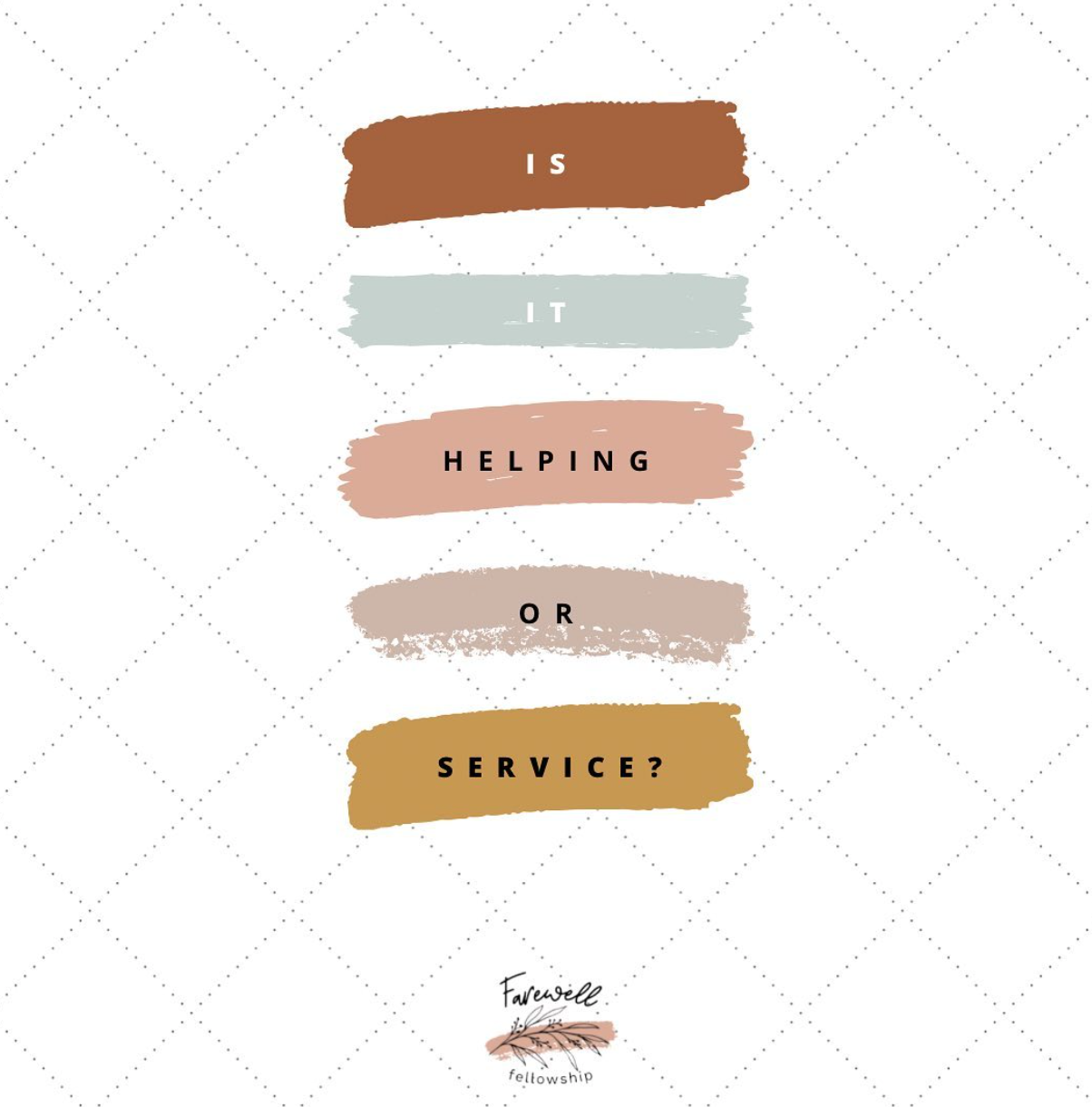Is It Helping Or Service?
I recently read a story of a death doula whose client reunited with his estranged children on his deathbed. It was a touching moment and while I was grateful that it was shared, something about the language rubbed me wrong. I believe the intent was to show the benefits of hiring a death doula, to highlight how we help those we work with, and to celebrate the peace of the reunion and the doula’s part in it. From my perspective though, if we claim our client’s “successes”, do we also have a responsibility to claim their “failures”? What if the reunion hadn’t happened and the client had died suffering his estrangement, would the doula be responsible for claiming that? Is it ours to judge or claim?
I’m not putting myself on a high horse here. As someone who struggles with control and who lives to “help”, I’m all too familiar with how good it feels to fix. That’s precisely why the words of Rachel Naomi Remen landed squarely in my heart: “Helping, fixing, serving represent three different ways of life. When you help, you see life as weak. When you fix, you see life as broken. When you serve, you see life as whole.”
Helping is always based on inequality, it is a doling out of assistance from your abundance to someone else’s deficit. Helping implies your strength, the other’s brokenness and it makes you feel strong in your generosity. Service, on the other hand, is a reciprocal relationship where the wholeness of one honors the wholeness of another and together they honor the wholeness of life. Serving fills us with gratitude. As Remen beautifully points out, Mother Theresa embodied this in her life of service: “We serve life not because it is broken but because it is holy.”
I’m not trying to call anyone out but I can’t be alone in relating to the desire to help. How often I’ve sat at the bedside and wished there was something, anything, I could do that would truly help. But as Frank Ostaseski reminded us, “If we want to help, explore our feelings of helplessness. What is that teaching us? If I’m going to be the helper, someone else must be the helpless.”

